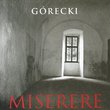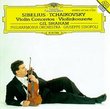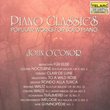| All Artists: Franz Liszt, Jenö Jandó Title: Liszt: Sonata in B minor; Deux Légendes; Gretchen Members Wishing: 0 Total Copies: 0 Label: Naxos Release Date: 5/26/1998 Genre: Classical Styles: Forms & Genres, Sonatas, Suites, Historical Periods, Romantic (c.1820-1910), Symphonies Number of Discs: 1 SwapaCD Credits: 1 UPC: 730099459426 |
Search - Franz Liszt, Jenö Jandó :: Liszt: Sonata in B minor; Deux Légendes; Gretchen
 | Franz Liszt, Jenö Jandó Liszt: Sonata in B minor; Deux Légendes; Gretchen Genre: Classical
|
Larger Image |
CD DetailsSimilar CDs
Similarly Requested CDs
|
CD ReviewsLiszt - Compositional and Poetic Masterpieces Hexameron | 06/30/2006 (4 out of 5 stars) "In Volume 8 of Naxos' Complete Piano Music of Liszt, the pianist Jeno Jando returns to record four top-notch compositions: the Sonata in B minor, the two Legends, and Liszt's piano transcription of the 'Gretchen' movement from the "Faust Symphony." Although the quality of these works is undeniabe, Jando's interpretations are uneven. His conception and execution of the Sonata in B minor will not appeal to the Liszt aficionados. I can recommend it to the Liszt layman, but I believe the value of this recording lies in the Legends and the 'Gretchen' piano version.
Liszt's Sonata in B minor (1854) is arguably his finest composition and one of the greatest piano sonatas ever written. William Newman places it alongside Schumann's Fantasy Op. 17 as "the two 19th-century masterpieces" of the piano literature. Although Liszt performed it for his enthusiastic disciples in Weimar, the work failed to impress Brahms or the Schumann's (and it was even dedicated to Robert). It has now been 150 years after the Sonata's public premiere and no musicologist, music theorist, or classical music fan can deny its influence, craft, and power. Jando's performance of this masterpiece, however, is disappointing. His interpretation is not the worst I've ever heard, but it's not perfectly stellar either; it hovers in mediocrity. I like his overall slower tempo, which is unusual compared to the racing superstar pianists of today. Jando takes his time, plays expressively, and never shows signs of fatigue. But his phrasing and the tendency to render many passages in staccato detracts from the Romantic grandeur of the piece. Dynamics are fine in the Andante sostenuto section, but there is an absence of aplomb in the Allegro energico. In other words, his lyrical delivery is superb but the fiery fortissimi and whirlwind climaxes are mechanical. Liszt's two Legends are exemplary works of his late compositional period and Jando's renditions are successful and inspired. The First Legend, "St. Francis of Assisi preaching to the birds," is full of resplendent figures and textures, gorgeous harmonies, and effective pianistic devices. One can truly hear St. Francis "preaching" to a congregation of fluttering birds. Jando's performance here is crystalline, magical, and proves that he knows how to communicate Liszt's ideas. The Second Legend, "St. Francis of Paolo walking on the waves," is a highly dramatic and grandiose evocation of St. Francis walking across the swelling Straits of Messina. Liszt's work musically conjures the image of surging tides and the majestic saint soaring across a turbulent body of water. While Jando's performance is not my favorite, it reverberates with forceful drama. The "Faust Symphony," Liszt's notable orchestral masterwork, features a lovely tone picture of Gretchen that is breathtaking as a piano transcription. Liszt transcribed his "Faust Symphony" for two pianos, which has been recorded by the Franz Liszt duo (Liszt: A Faust Symphony (two piano version)), but I think Jando's playing in this solo piano version is extraordinary. His impeccable understanding of the movement itself comes across in the "He loves me...he loves me not...he loves me" interlude, in which I find Jando's intricate dynamics most impressive. I actually prefer this music on the piano and have no compunction about dismissing comparison between the orchestral movement and this transcription as pointless. Bottom line: Those looking for an alternative interpretation of the Sonata in B minor should continue searching. Pollini, Arrau, Brendel or Watts have recorded this work with far greater distinction. However, for those who have never heard the Sonata in B minor, this is not a totally bad performance to become acquainted with; it's just not up to par with the illustrious others. Despite the Sonata, though, this recording is mainly invaluable for Jando's solid interpretations of the two Legends and the lovely 'Gretchen.'" |

 Track Listings (4) - Disc #1
Track Listings (4) - Disc #1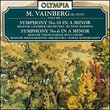
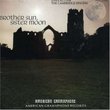




![Across The Universe [Deluxe Edition]](https://nationalbookswap.com/cd//m/51/1251/1241251.jpg)
